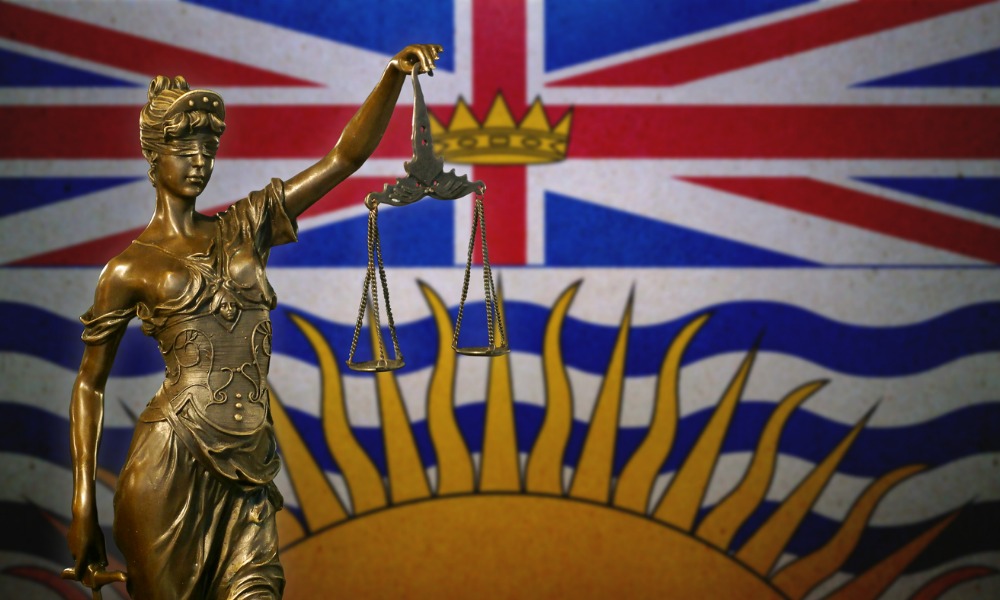
Lawyers' Rights Watch Canada says BC's proposals 'raise serious concerns' about legal independence

The Canadian Bar Association, BC Branch, supports a single regulator model for the legal profession, as long as these changes do not impact lawyers’ independence and self-regulation, the legal association says in its submission to the Ministry of the Attorney General.
Responding to the government’s Intentions Paper released in September, CBABC’s president Aleem Bharmal says “clients need to know that the relationship with their lawyer cannot be interfered with by government.” He adds that a cornerstone of democracy is “that government not restrict who lawyers can represent or prevent them from challenging government decisions.”
In the submission, CBABC calls for “strong parameters” around each profession’s scope of practice; “crystal clear” criteria for education and competencies; an effective investigation and discipline framework; and satisfactory insurance coverage.
The BC government’s Intentions Paper, released in September, proposes legislation that will regulate lawyers, notaries, paralegals, and others under one statute and one regulator. It will also clearly define scopes of practice for each profession. These reforms intend to further the government’s goal of modernizing professional regulation in all fields in BC.
The CBABC also recommends a smaller, more agile board of directors for the province’s law society, which regulates lawyers, that is comprised with a majority of lawyers, along with public appointees, notaries, at most two seats for paralegals, and at least one seat reserved for an Indigenous person.
As well, the CBABC says the defined scope of practice for paralegals is not yet developed sufficiently to include it in this statute. Nevertheless, the association “acknowledges that a limited number of seats for paralegals could assist in expanding and regulating the classes of professionals.”
“Modernizing the regulation of lawyers is not the solution to advancing access to justice. Actions such as funding the family law legal aid system are more critically needed,” says Bharmal.
“For example, almost one in three civil cases in BC relate to family law. Legal Aid services provide limited coverage for issues like child support or parenting arrangements, and the public is left vulnerable to this gap.”
The Canadian Bar Association is the professional organization representing more than 36,000 lawyers, judges and law students across Canada, with over 7,600 members in British Columbia. The BC branch’s recommendations come after consulting with more than 450 members and non-members, virtually and in-person.
Lawyers’ Rights Watch Canada has also put out a statement in its submission on the Intentions Paper. It says it wants the province to “ensure that it fully recognizes the legal profession as independent and not subject to control by government.” It says the Intentions Paper “raises serious concerns about access to justice and the independence and integrity of the legal profession in Canada.”
It adds that “this is a fundamental principle of the rule of law,” as elaborated in the UN Basic Principles on the Role of Lawyers. “This means ensuring that the legal profession is to be controlled by elected members of the legal profession, not by a combination of government appointees, notaries, paralegals and others.”
The submission is authored by Lawyers’ Rights Watch Canada member Catherine Morris. Morris was transitional Executive Director of the group from 2020 until her term ended in January. However, she plans to continue to serve as LRWC’s main representative to the United Nations for this year.
“The BC legal profession and government must guard against the development of any laws,
regulations, or policies that have any potential to be abused by successor BC governments or that
can be used by authoritarian governments as models to justify laws that would be applied to limit the independence of lawyers and the legal profession.”
While the legal profession “must not be controlled by government,” the Lawyers’ Rights Watch statement says the Law Society of BC should engage as full partners with the Attorney General “to ascertain what forms of modernization and cooperation regarding regulation may be appropriate in compliance with international law and standards for independence of the legal profession in keeping with the rule of law.”